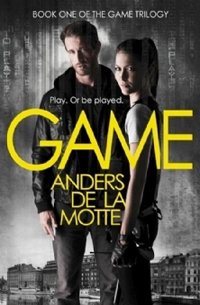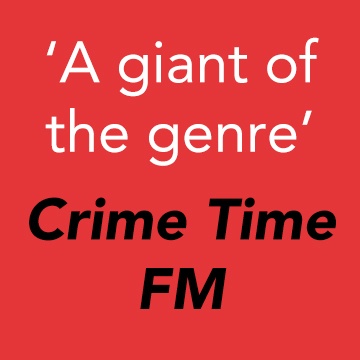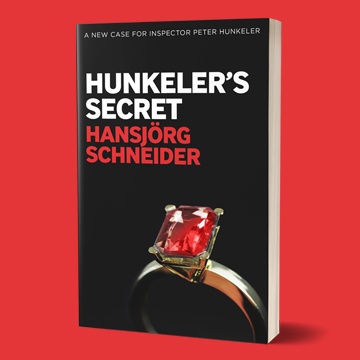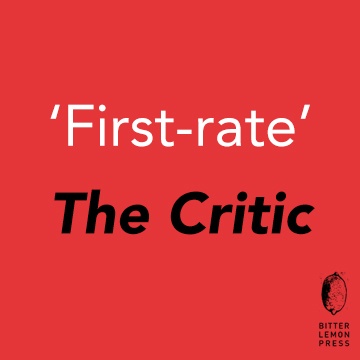Swedish author Anders de la Motte created quite a stir with his debut novel Game, which won the Swedish Academy of Crime Writers’ First Book Award. It is book one of a trilogy of crime novels (Buzz and Bubble are the others) that have been translated into English, with a publication date of December 5. The 42-year-old author lives in Southern Sweden and has worked as a military policeman, a civilian policeman, and in private security where he served as an international security director for two Fortune 500 companies. Not only does he know his beans, but his books take in technology and popular culture. In particular, an alternative reality game that fuses the digital and real worlds with shocking results. We caught up with him in New York, where he is preparing for the US release of his books. But first, here’s a trailer for the books…
After a career in law enforcement and security, what made you decide to become a crime fiction writer?
My mother is a librarian and our house was and is always filled with books. I read a lot, although crime fiction has remained close to my heart. I suspect that is why I joined the police. When I moved into the private sector I did a lot of travelling, with more time to read. One day my wife Anette asked me when I was going to try writing something of my own. Much to my surprise, I answered, “Now!” It turned out I, subconsciously, had been pondering the idea for a while. I wrote my first script back in 2007, my third was the draft for Game that was picked up in 2009 – so it took me a couple of years to find my style.
What do you think crime fiction lovers will enjoy about Game?
I hope readers will enjoy the pace, the slightly unusual characters, the twists and turns as well as the very contemporary plot. The main theme explores how far people are prepared to go in order to get noticed and validated by others. Deep down, most of us are still cavemen, we need to know we have a place inside the cave by the fire and that we are not alone outside in the dark. Thriller fans like myself will hopefully recognise and appreciate the various nods and winks towards some of the classics, like North by Northwest and pop-culture geeks, like me, may pick up on the subtle details and nods towards films, TV series or other pop-cultural phenomena.
Tell us a little more about your main characters, the petty criminal Henrik and the policewoman Rebecca and what inspired them?
HP is in his early 30s but acts like he is 18. His world is focused around himself and his immediate needs. He knows he has some unique skills that, together with one good deed many years ago, allow him to take shortcuts in life. He has little patience for anything other than videogames and smoking pot. But once he is introduced to the Game he has a chance to shine in front of an audience of peers and very soon he is willing to do more or less anything to keep playing.
Rebecca is the opposite of HP. She has a constant drive to be in control, not to let her guard down. This is a combination of my Swedish Lutheran upbringing as well as my previous line of work in law enforcement and security. HP and Rebecca can be tiresome to write, but they balance each other out.
Tell us more about alternative reality and how you’ve used this concept as the basis for a crime novel?
I started out by creating HP, who is an anti-hero only focusing on his own needs. My problem was: how do I get him involved in any kind of mystery when he is very reluctant to even get off the couch? When you have a policeman, a journalist or a lawyer as your protagonist this comes naturally, but with HP I needed to dig deeper. The need for some excitement combined with the need for appreciation and validation was the drive I was looking for. HP got this in small doses through his online computer games but when presented with a large scale ‘real’ game, I’d finally found the way to get him moving. He is willing to do almost anything in order to keep enjoying that buzz.
How do you keep a story moving along whilst still explaining enough about the technology to make it clear what’s going on?
I try not to get very involved in technology, since it is easy to lose the reader’s attention. Sometimes my books are described as IT-thrillers but I’m just an everyday user of the normal IT-tools. Everyone who has a mobile phone, used Google or sent an email will have no problem following the plot. Technical stuff also dates very quickly, another reason not to get too involved.
Your debut was a great success in Sweden. What’s it like seeing it released in English and why do you think Swedish crime fiction has done so well outside Sweden?
Every non-English writer dreams of seeing his or her books published in English. The English speaking market is the holy grail of writing. I think Swedish crime fiction is doing well for several reasons. We are a small, slightly exotic country way up in the dark and cold north, sometimes seen as an ideal society. Mixing that with terrible crime or conspiracies creates a very interesting dynamic. A lot of us are fairly young and have probably seen just as much television as we have read books. This makes our storytelling a bit different.
There are two more books in the series – can you give us a taste on how the story develops?
In the second, Buzz, there is a murder mystery, a PR company with a very unusual and not very pleasant way of working crafted by their ex-military intelligence. There is also an internet stalker and a secret chat-forum for law-enforcement officers, that quickly turns on one of the main characters. In the third book, Bubble, there is a secret security deposit box containing disturbing evidence about someone very close to one of the main characters. The book also features a company specialising on harvesting and storing customer data. In the middle of all this is the Game Master himself.
What are your plans for future crime novels?
My new novel titled MemoRandom is released in Sweden this spring. It is a very different from the Game trilogy, more of a noir story where there aren’t any heroes. The story revolves around a policeman responsible for recruiting and handling secret informants. But after suffering from a stroke he forgets everything that has happened in the past year or so – including a special informant, codenamed Janus, that everyone seems interested in finding. The initial feedback on this novel has been very positive.
















